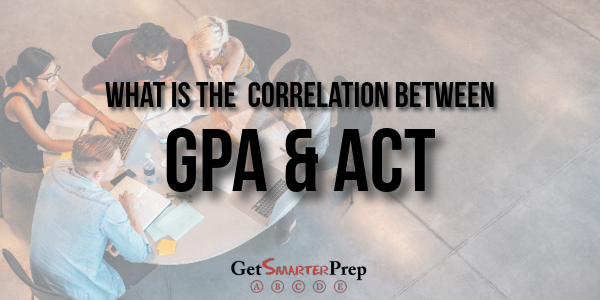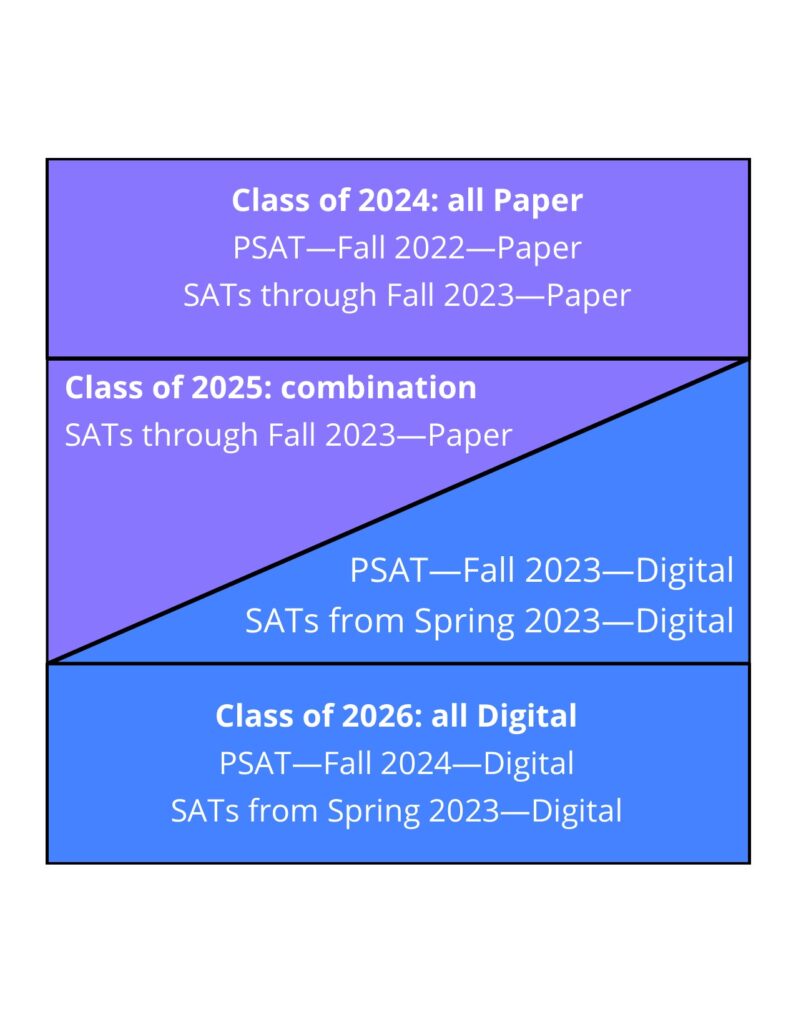What is the correlation between GPA & ACT
We hear parents tell us constantly that their student is a really good student who has an excellent GPA, but they can’t seem to get the ACT score they want. So now what? Their student probably is a great student who pays attention in class, completes their homework, and tests well, however the correlation between a students’ GPA and their ACT is wildly different.
There are several factors that lead to this conclusion: grade inflation, test-taking skills, and knowledge of the ACT. Within this blog, we will break down all reasoning as to why GPA has little to do with your ACT score.
Grade Inflation
Does it seem like every high school student you talk to now a days has a 4.0 or higher? That’s because most of them do. Grade inflation is a complex issue with a range of statistics to consider.
The overall trend:
- Average GPAs have been steadily increasing: Between 2010 and 2022, the average adjusted GPA increased in all core subjects. For example, in math, it climbed from 3.02 to 3.32, representing a significant shift from a B to a B+.
- More A’s and B’s, fewer C’s and D’s: Across subjects, the percentage of students receiving A’s and B’s increased, while those receiving C’s and D’s decreased.
- Grade inflation across all student groups: The trend is present for students of all income levels and backgrounds, not just specific demographics.
Specific details:
- Math shows the highest inflation: Math grades have seen the most pronounced increase, raising concerns about potential dilution of rigor in these courses.
- Standardized test scores such as the ACT/SAT don’t reflect GPA growth: While GPAs have risen, standardized test scores like the National Assessment of Educational Progress (NAEP) haven’t shown similar improvements, suggesting a disconnect between grades and actual academic mastery.
Test-Taking Skills
The correlation between test-taking skills and the ACT score is moderate to strong, but not perfect. Studies have shown that students with better test-taking skills tend to score higher on the ACT, but other factors also play a significant role.
Here are some stats to illustrate the correlation:
- Meta-analysis of test-taking interventions: A 2009 meta-analysis found that test-taking strategies improved standardized test scores by an average of 0.19 standard deviations. Applied to the ACT, this translates to roughly 3 points on the composite score, which can make a big impact for college admittance or more scholarships.
- ACT research: ACT’s own research suggests a positive correlation between specific test-taking skills and performance on different sections of the ACT. Since the ACT is a timed test, most students tend to run out of time in certain sections of the test. However, students who are good at time management and pacing tend to score higher on the Math and Reading section, which has tight time constraints.
Test anxiety or specific difficulties: For students prone to test anxiety or struggling with certain question types, dedicated test-taking strategies and practice can significantly improve performance, even with a strong knowledge base.
Knowledge of the Test
While test-taking skills come in handy and can increase your overall score, knowledge of the test and what the test-makers are looking for is key to unlock the test itself. Our expert Tutor, Caleb Pierce, is adamant that once you know what to look for on the test, learn the strategies, and practice the content of which is on the test (a.k.a. do your homework), students will have all of the confidence to meet or exceed their ACT goals.
- Understanding the format of the test, question types, and timing strategies can be immensely valuable. While a strong knowledge base is essential, test-taking skills can help maximize that knowledge within the limitations of the format.
- Prioritize solid understanding of the content. Maximize your ACT math score by prioritizing core skills. Algebra II is a crucial building block for success with the ACT. Conquer it first, and the test will be more manageable.
- Students with a solid grasp of the material may need less emphasis on test-taking skills and can focus on applying their knowledge strategically during the test. Test-taking skills can still be helpful for managing time and approaching certain question types, but thorough understanding of the subject trumps specific test-taking tactics.
Overall, dedicated students who have an ACT goal in mind and choose to prioritize that goal are the students who will succeed the most. A solid understanding of the content, alongside relevant test-taking skills form the foundation for success on a standardized test such as the ACT.
No matter what GPA students have, when they prepare for the ACT with Get Smarter Prep, we build a foundation of knowledge from what we know will be including on the test, test-taking strategies to help build confidence in their testing ability, and most importantly, a significant reduction in stress on test day.













